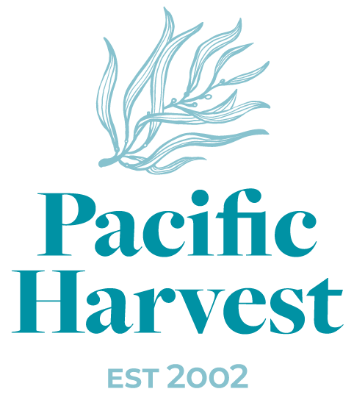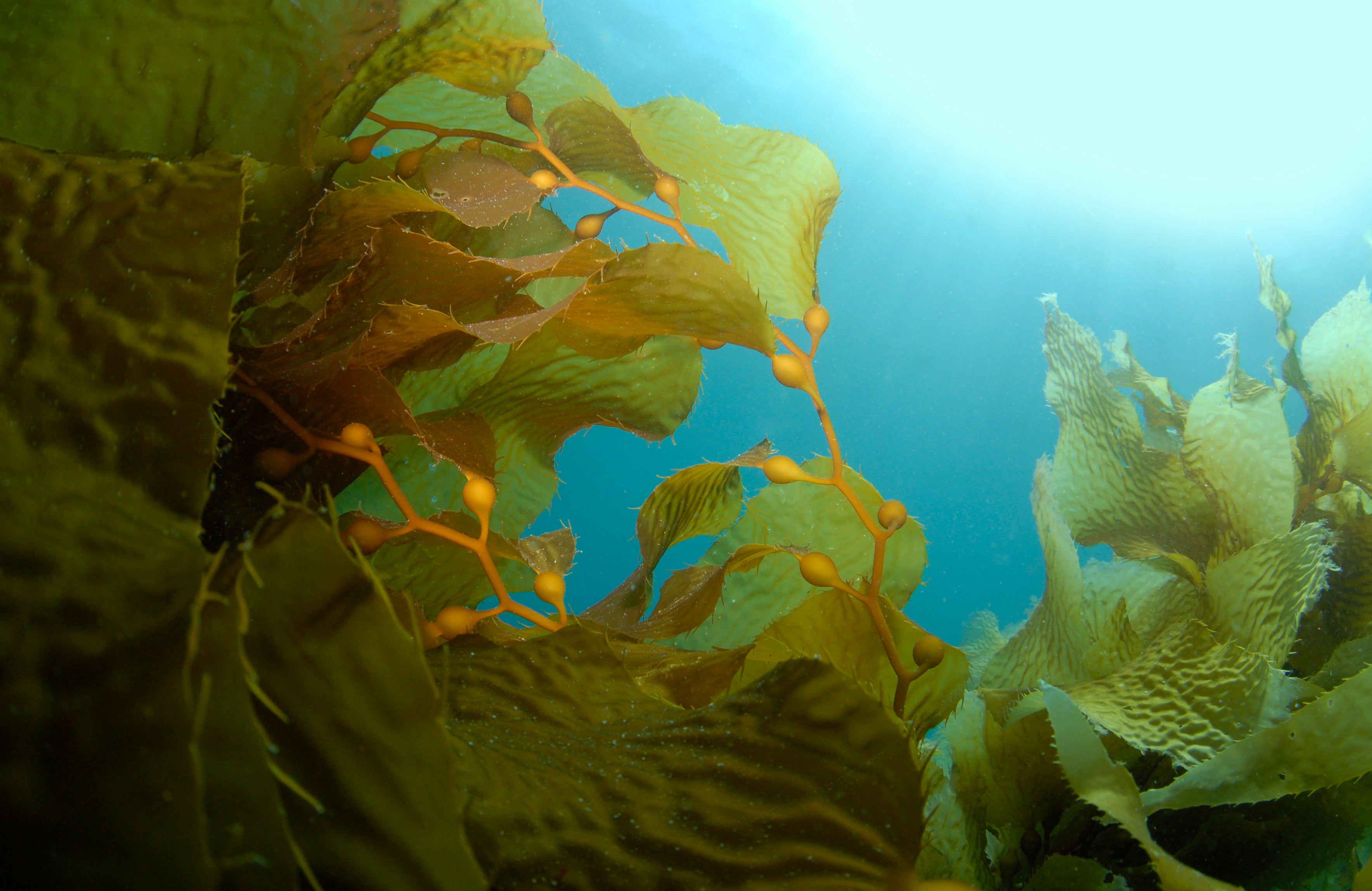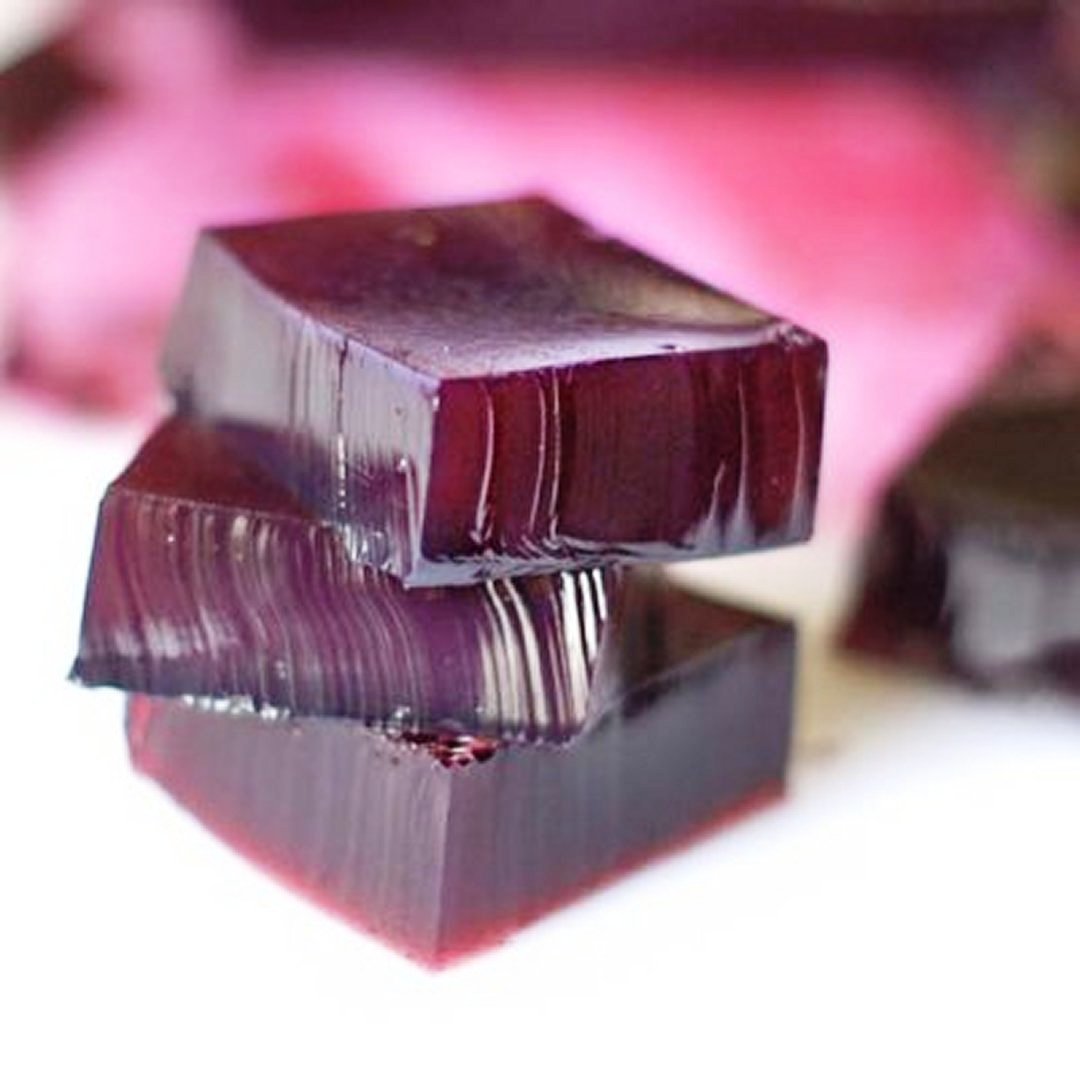Seaweed’s nutritional value is exceptional and eating small amounts regularly can bring a variety of benefits for your health. Seaweed’s nutritional information can be summarised into three broad (inter-connecting) categories:
- Seaweeds have exceptional mineral, nutrient and trace element density. The nutritional value of seaweed far exceeds any land plants. They also contain all five essential nutrients of a good diet – vitamins, minerals, carbohydrates, protein, plant fibre & fat.
- Cleansing and detoxing
-
Balancing and soothing
If you are not already including a bit of seaweed as part of your regular diet, we hope this article gives you some incentive to get started!
Seaweeds offer concentrated and unique minerals and nutrients not always available from land plants
The chemistry & physiology of seaweeds (a.k.a sea vegetables) is very different to that of land plants. Seaweeds use their entire surface area to absorb the abundant minerals and nutrients present in the ocean. Many of these minerals, such (e.g. iodine and selenium) are not even found in soils, even if the grounds are healthy. Additionally, seaweeds have a unique ability to concentrate minerals essential for the human body's healthy functioning.
Seaweed & Iodine
Seaweeds offer the richest source of natural organic iodine, with a high bioavailability. This is essential to support metabolism, regulate weight, and stimulates cellular activity (this, in turn burns fats and eliminates toxins).
Seaweed & Vitamin B12 - supporting plant based diets
Plants that grow on land have no B12 requirement for any function and, therefore, no active mechanism to produce or store it. Seaweeds, such as Nori, gain Vitamin B12 from bacteria that live on them and in return, it gives carbon to the bacteria. There is debate over whether seaweed contains an active or inactive B12. Looking at the empirical evidence, the authors of ‘Sea Vegetable Celebration, Shep Erthart & Leslie Cerier, noted vegetarians who had not eaten any animal products for over 30 years but regularly consumed seaweed never showed any symptoms of B12 deficiency. More research is underway into the bioavailability of B12 in seaweed which is showing promising results.
Seaweed & calcium
Seaweeds contain a notable amount of calcium with low levels of oxalic acid and phytates – unlike other plant sources of calcium – which makes the calcium in seaweed highly available. Seaweeds also contain many trace minerals which are essential for bone health.
Seaweed & potassium
Some seaweeds are high in potassium and offer it in the ideal ratio to sodium. Potassium is needed to offset the hypertensive effects of sodium & regulate blood pressure, and maintain proper pH levels in the body fluids. An imbalance between these minerals can lead to several diseases.
Seaweeds offer an array of other concentrated minerals, nutrients & trace elements
Sea vegetables can have up to 20 times more usable minerals, concentrated calcium, iron, and magnesium than land vegetables. The number of individual minerals & essential elements varies according to the specific seaweed, as well as several other environmental and seasonal factors. Still, they are naturally presented, in balanced proportions, for easy assimilation by the body.
Seaweed contains unique compounds
Algin, Fucoidan and Laminarin are found, especially in brown seaweeds. Research shows these compounds play an essential role in correcting degenerative diseases.
Seaweed & antioxidants
According to ‘Plants as a Natural Source of Antioxidants’ by Nawal Kishore Dubey, algae represents the most untapped source of natural oxidants. This is mainly due to their enormous biodiversity, which exceeds that of higher plants (terrestrial).
About seaweed’s protein
Proteins in seaweed are offered in a simple form that is easy for human bodies to assimilate. This protein is also low in calories and fat, alkaline, and contains no cholesterol. Red seaweeds offer the highest protein of all seaweed groups -Nori, for example, can have up to 35% protein.
About seaweed’s fibre
Seaweeds contain many ‘polysaccharides’, most of which are not digested by humans. Therefore, they are regarded as dietary fibres. Seaweeds have a relatively high fibre content (33-75%), particularly rich in soluble ones (50-85% of total threads), some of which have pre-biotic benefits.
About seaweed’s carbohydrates
Seaweeds contain carbohydrates - exceptional saccharides in the form of phytonutrients ( for example, in Agar & carrageenan) & complex sugars (like Mannitol). Seaweed carbohydrates are slow-releasing sugars in the form of fibres, supplying plenty of energy with few calories. The threads in seaweed come in soluble & insoluble forms. Both can bind water or mineral cations and may be used by colonic microflora as a fermentable substrate to provide prebiotic benefits & facilitate the binding, lubrication & evacuation of toxins.
About seaweeds fatty acids & amino acids
Ocean vegetables contain fatty acids with a favourable ratio of Omega-3, antioxidants & phytonutrients. A lower percentage of omega-6/omega-3 fatty acids is more desirable in reducing the risk of many chronic diseases of high prevalence in Western societies.
Seaweed protein can also be a source of all amino acids, especially glycine, alanine, arginine, proline, glutamic, and aspartic acids. In algae, essential amino acids (EAAs) represent almost half of the total amino acids, and their protein profile is close to the shape of egg protein.
Seaweed & detoxification
Seaweeds are also known for their ability to cleanse and detox gently. Seaweeds act like sponges in the ocean. They contain unique bio-active compounds that attract heavy metals and environmental pollutants and will perform this same gentle detoxing function in your gut when you eat them.
Seaweeds have unique compounds which attract toxins, and some of them, like Agar and Irish moss, also have a gentle laxative effect, helping the body to eliminate waste more efficiently. Read more about how seaweeds can help to cleanse and detox here.
Seaweed’s ability to restore healthy, natural balance to our overall functioning
Studies have shown seaweeds can play several balancing functions in our bodies. This ranges from supporting lower blood pressure (due to their potassium content), promoting lipid metabolism in the liver, and helping to regulate endocrine function. They are also highly alkaline, so they are soothing for the digestive tract. The alginates they contain help balance salts in the body by eliminating excess sodium & environmental toxins. Seaweeds contain phytohormones & sterols; with almost no calories. Read more on balance here.
In summary, the nutritional value of seaweed is unrivalled and holistic. Adding small amounts of seaweed to a regular diet is good for your health. Read our tips to get started today!
Ensure you buy good quality seaweeds which have been dried naturally (so they retain their vitamins and natural enzymes), tested for contaminants and harvested ethically and sustainably.




